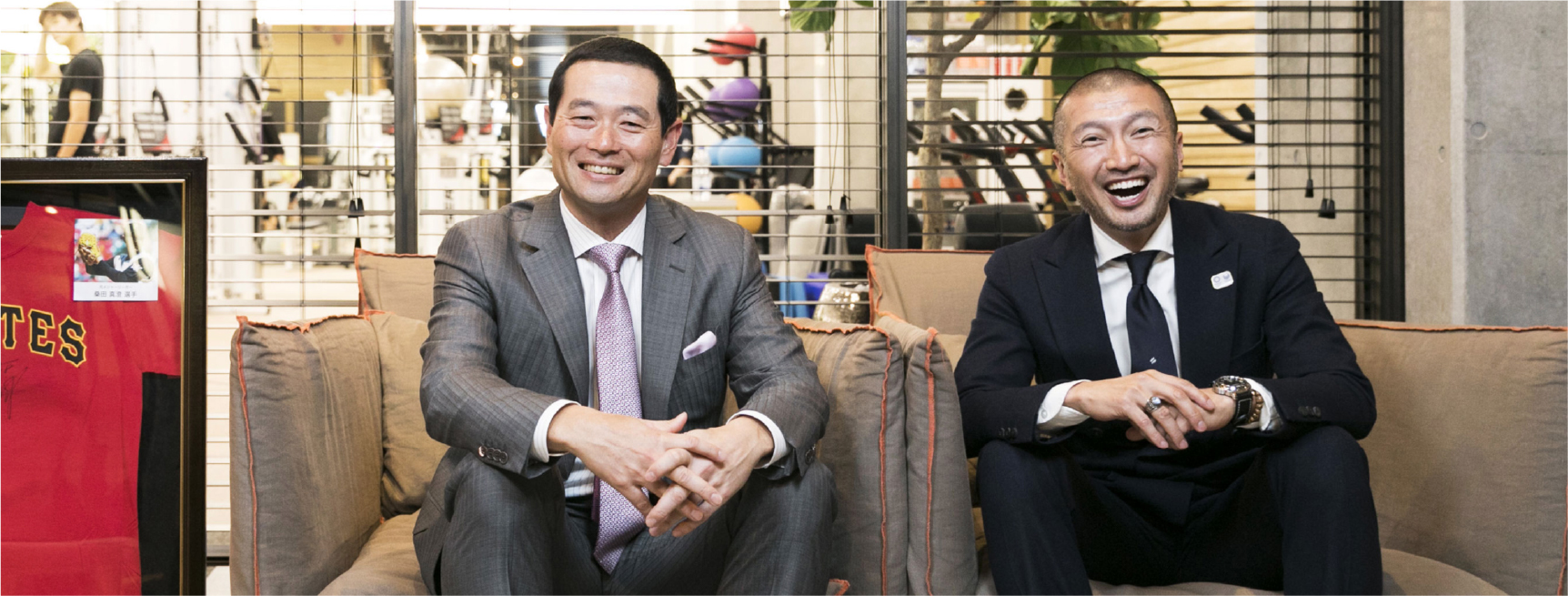In-Depth Conditioning Discussion No.02Raising the Profile of Japanese Athletic Trainers
Kosuke Kitajima x Takeshi Suzuki. (R-body)
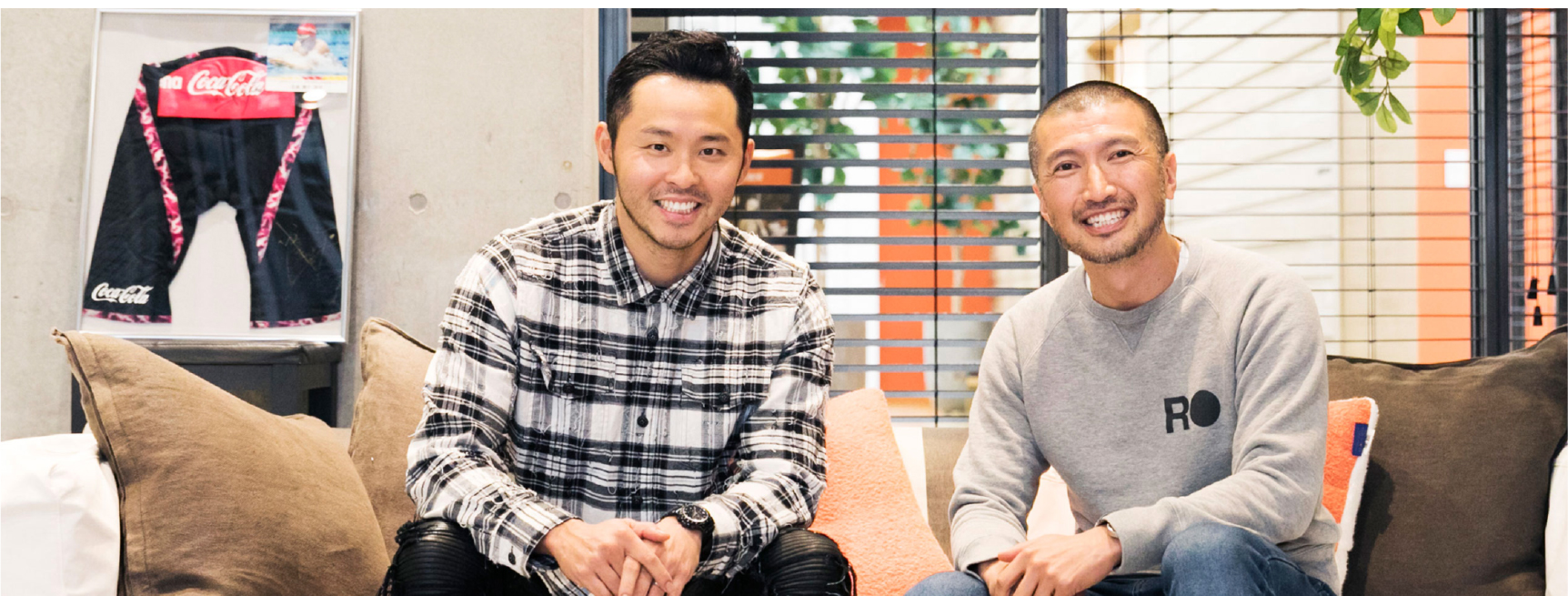
If you hear the name Kosuke Kitajima, what kind of image springs to mind? Well, the truth is that even back when the multiple Olympic gold medalist was still competing as a professional swimmer, he was also busy establishing Perform Better Japan PLC, a sports training seminar and training equipment supplier, with the aim of "raising the profile of the athletic trainers who support us athletes behind the scenes". Here Kosuke Kitajima talks with Takeshi Suzuki, the CEO of R-body, who is a close personal friend both publicly and privately. The location is the training area at the R-body Conditioning Center.
* This conversation took place in February, 2018.
If You Don't Try, You Will Never Know
Suzuki : So, Kosuke, it is well-known that you rarely give these kind of interviews, so this really is an honor and a privilege.
Kitajima : Yes, it is indeed priceless (laughs). But there is a good reason I came here today. Since you have always worked quietly behind the scenes, Takeshi, I wanted to help bring you and your company, R-body project, into the world spotlight! (laughs)
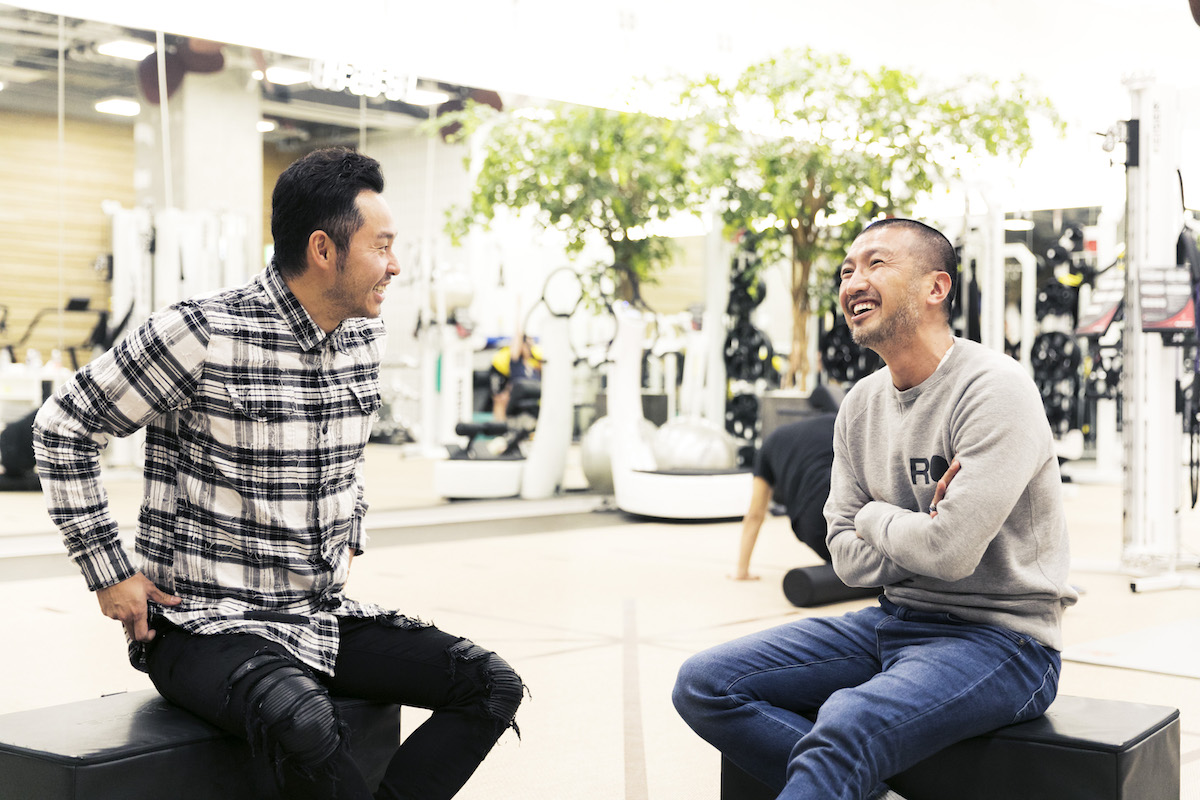
Suzuki : Haha. I'm truly grateful for your assistance! To tell the truth, I'm often asked by people I meet, "What exactly does R-body do?" or "What's the difference between R-body and other personal training gyms?", and it's quite hard to explain precisely, using only words. So I usually just say, "Please come along for a trial session and see for yourself! Then you will understand!". Then if they come and take a session, they are like, "OK. Now I got it. Now I understand what you guys do". I know it's a bit strange, you know, that we can't explain well about what we do, but people really need to come along and experience it. (laughs)
Kitajima : Yeah, I can certainly see why it would be difficult to explain in words. You have not only Olympic athletes coming here, but also regular people like businessmen, housewives, etc, all training alongside each other, plus you have affiliations with doctors and medical facilities. It's kind of difficult to picture how that works without seeing it. And if you are asked, "So, can I lose weight?" or "Do you have a jacuzzi?", it's not really that kind of place either.
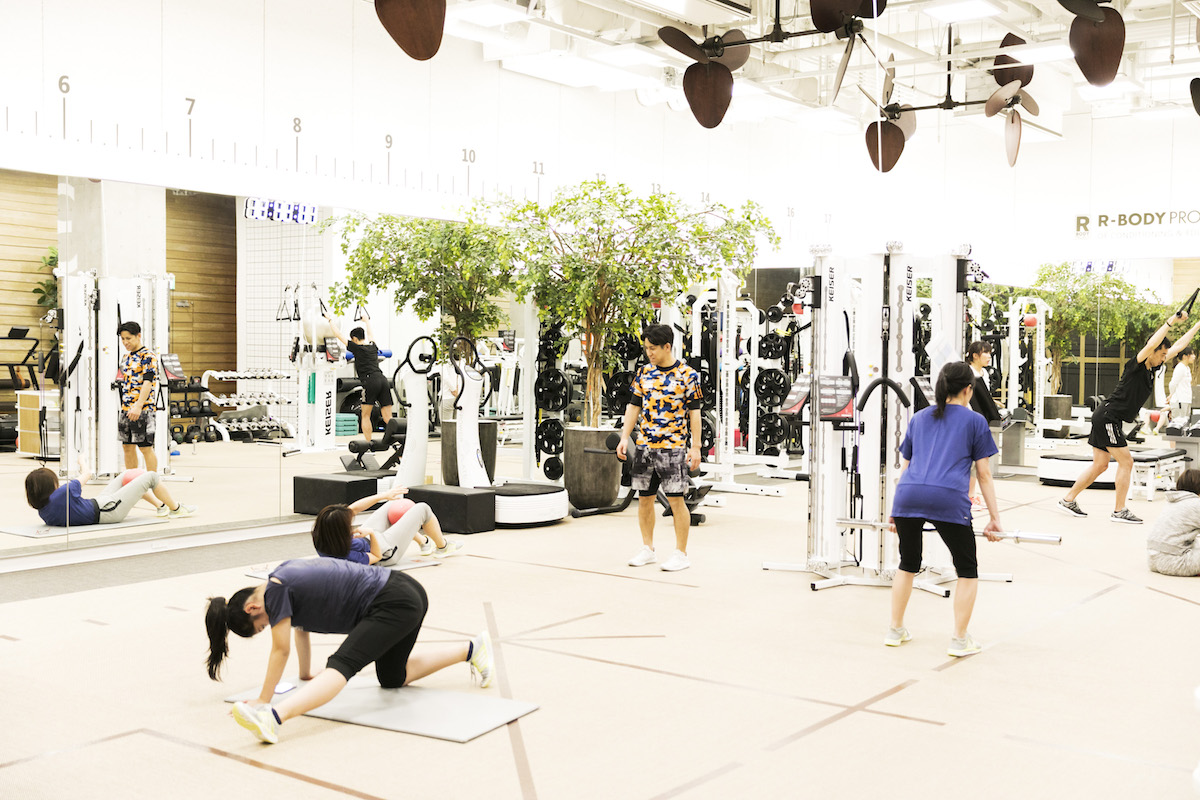
Suzuki : That's right. That's why I thought I'd ask you to come and chat with me, not about R-body which is difficult to explain in words, but instead about the perception of athletic trainers and your thoughts on training in general.
Kitajima : I'm glad you feel you could ask me. All the same, I think there are so many athletes out there that have been helped by R-body, that they probably feel like me that R-body should be more widely known throughout the world! (laughs)
Just A Friendly, "What's Up?"
Suzuki : I appreciate it. When did we first meet? Back in about 2003, I guess?
Kitajima : That sounds about right. The first time I met you was at JISS (the Japan Institute of Sports Sciences), when we exchanged pleasantries.
Suzuki : On my side, it felt like I'd known you for a long time, because you were the famous Kosuke Kitajima! (laughs)
Kitajima : How long had you been part of JISS?
Suzuki : I was part of it from the beginning, since it was set up in around 2001.
Kitajima : OK. So the same as me.
Suzuki : Although at that time, we still only vaguely knew each other.
Kitajima : Yes, I hadn't taken your training at that point.
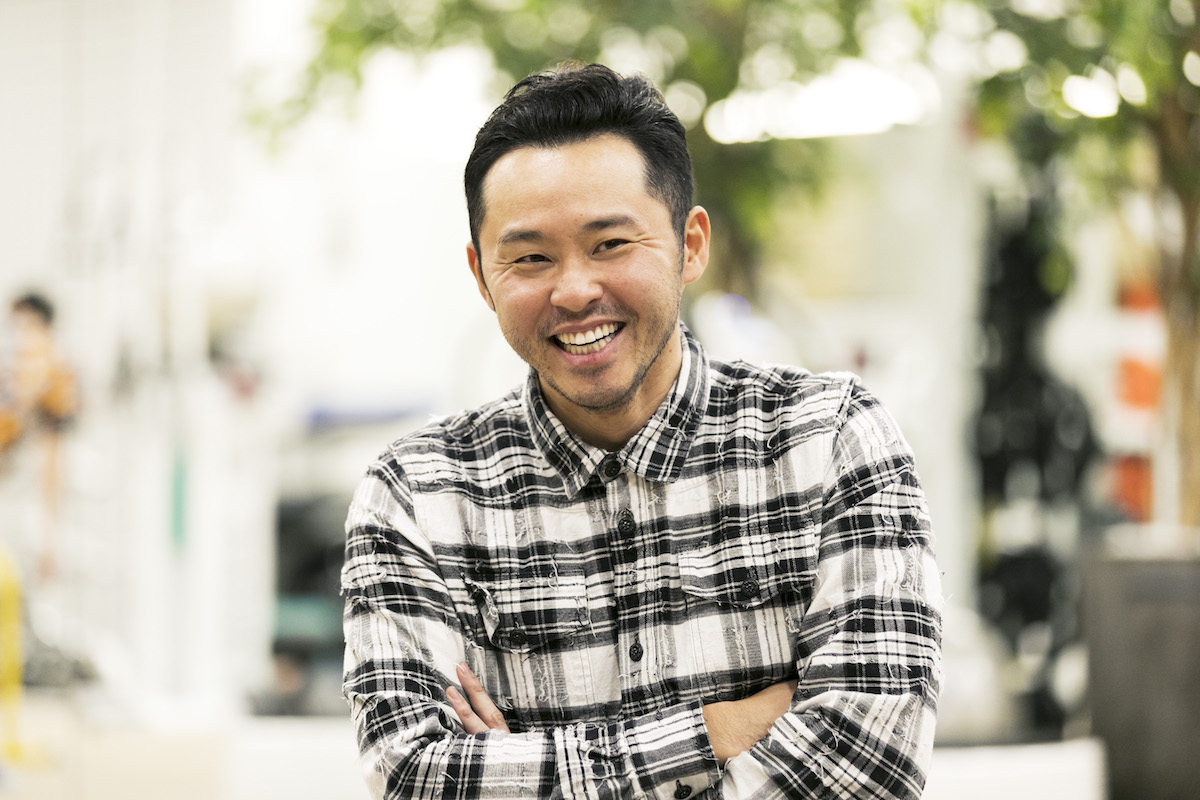
Kitajima : We'd sometimes bump into each other while out for dinner as we had many mutual acquaintances, but never said much more than "Hey, what's up?".
Suzuki : Yeah, just an informal "What's up, man?". (laughs)
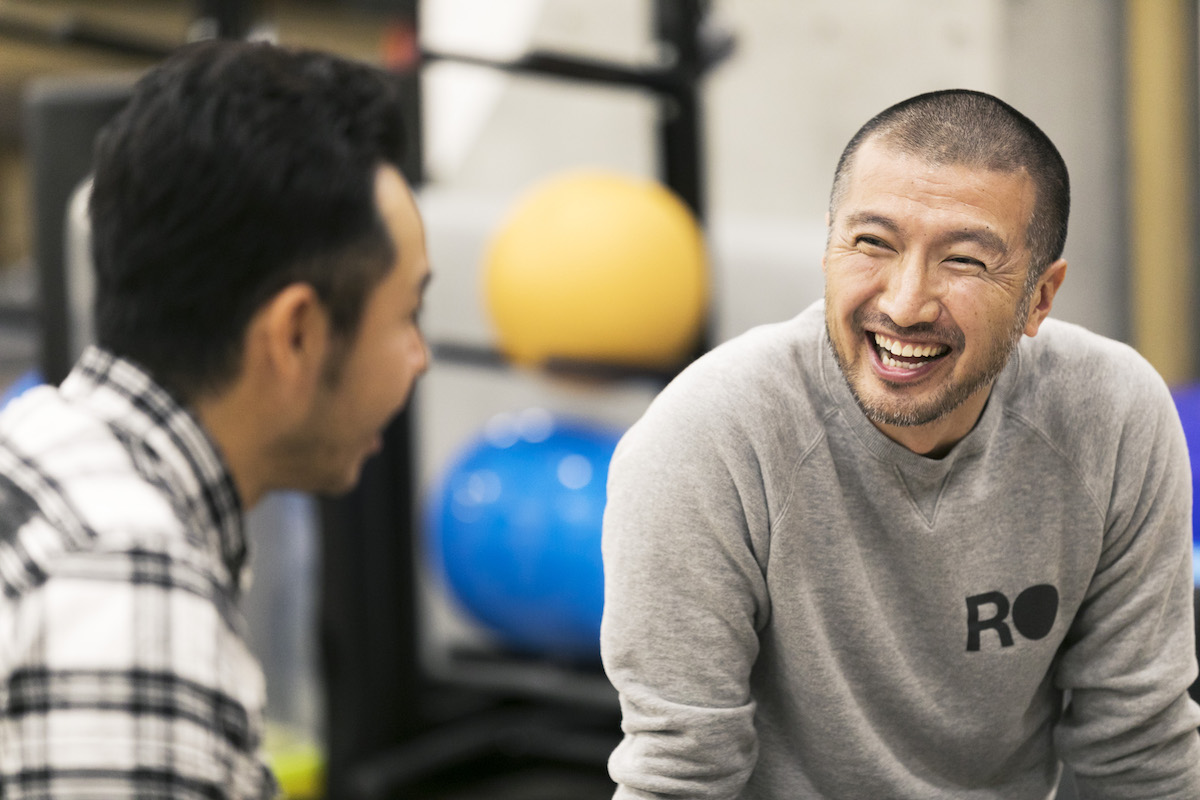
A Curiosity For Learning
Suzuki : When did you first start thinking seriously about athletic training and conditioning?
Kitajima : When I went to America in 2009, I started to think more seriously about what kind of training I should be doing. It sounds like I was pampered, but up until that point I hadn't really had to think too much about the kind of training routines I was doing; everything was handled for me. But in America I was by myself, without the 24 hours support I'd been accustomed too, so I had to start thinking about my body and what I was going to do. It was under these circumstances that I thought I'd better set up an appointment with you.
Suzuki : I'm much obliged.
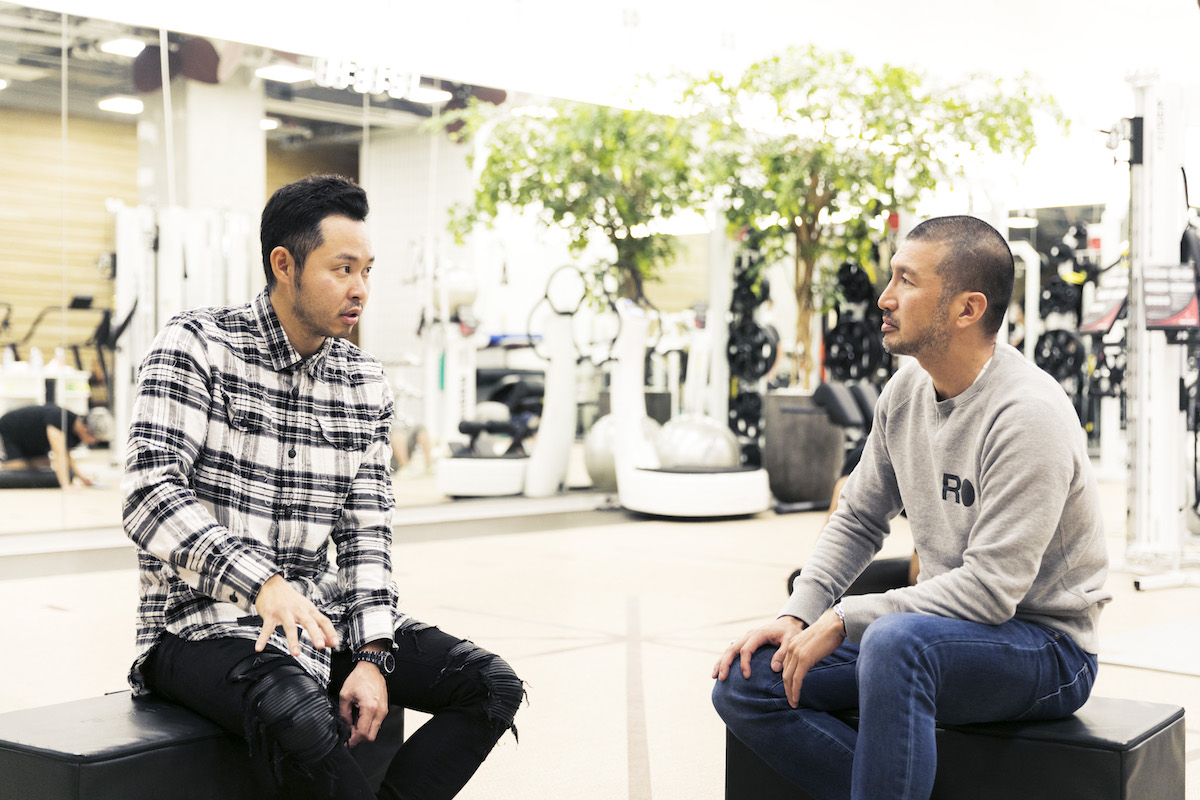
Kitajima : At that time I was also drawing towards the end of my competitive career, and when I thought again about why I'd gone to America, I made up my mind to make the absolute maximum of the remaining years I had left as a professional. I decided I needed to learn from scratch as much as I could about training, diet, and everything to do with my body. At that point, you joined me overseas for my training and competitions.
Suzuki : From my side, I was introduced to you by my fellow trainers, and I thought that, being the great Kosuke Kitajima, you would have a lot of international experience and some interesting ideas on what worked and what didn't work for you based on what you had seen. So I thought it would be a great experience for me to work with you. Although I thought I would just be a stop-gap trainer before the next guy took over.
Kitajima : No, of course not.
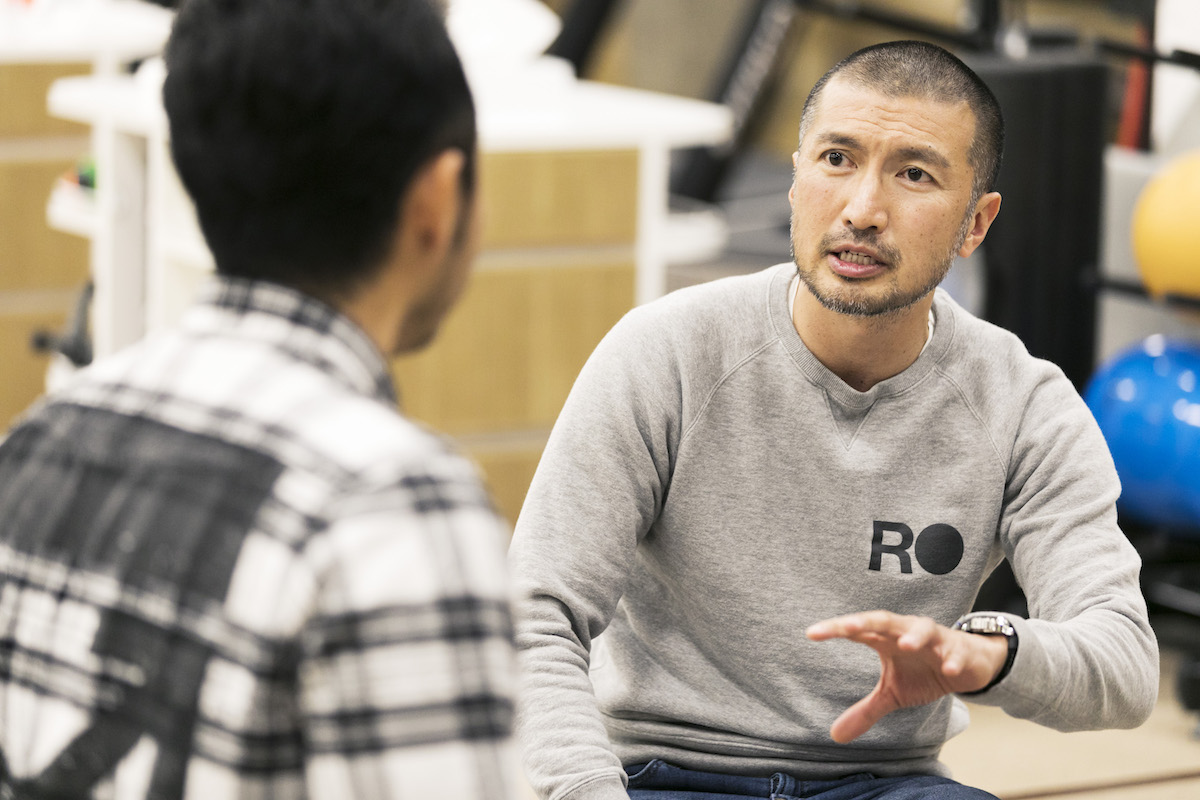
Suzuki : Anyway, talking about those days, I remember you attended the Perform Better seminar in L.A. even though you were an athlete. (laughs). That seminar was for athletic trainers, not athletes, and attracted over 1,000 trainers from around the world.
Kitajima : I'd heard that there were lots of great trainers in the US, and among those real top-class trainers I was interested to see what kind of people were there.
Suzuki : That's another example of the wonderful curiosity you possess. And your ability to switch between being "on" and "off".
Kitajima : As you know well, Takeshi, I like to fool around, so I'm conscious of being able to switch between the silly and the serious. But when I'm switched on, I like to mean business. If I'm doing something, I want to do it well.
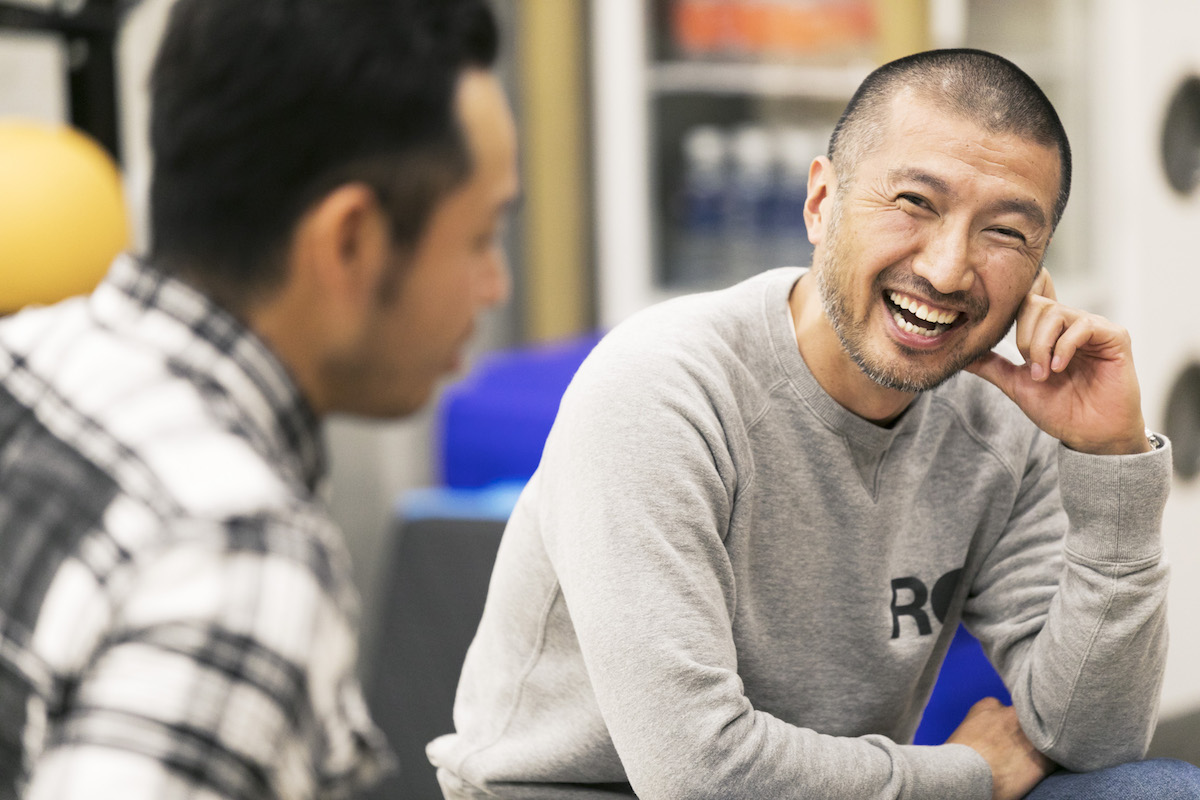
Suzuki : Yes, and having spent a long time together, another thing I really like about you, is your willingness to try anything. Whatever training program I give you, you just get on with it. Considering you have seen so many kinds of training around the world, and consequently have a good idea of what is and isn't a good fit for you, I think your attitude to still give anything a go is fantastic.
Kitajima : Thank you. Anyway, going back to that seminar I attended in L.A., I think there is a lot of great content that is worth learning about, even for people who are not athletic trainers. Plus, it would be great if there were also seminars for the athletes themselves, held at the same time. It is something that the organizers should think about.
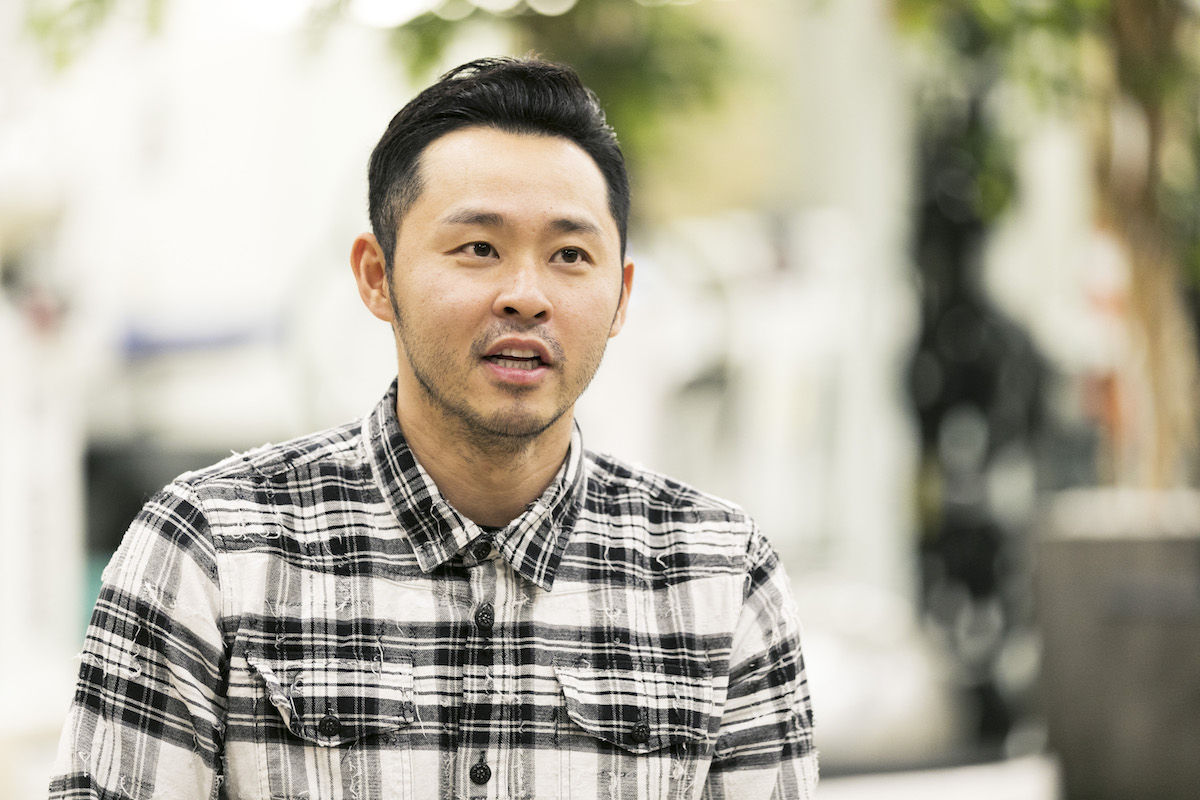
Kosuke Kitajima As President
Suzuki : At R-body, we have the slogan "Train your brain as well as your body", and I think the ideal situation would be for athletes themselves to gain enough knowledge about conditioning to be able to make their own decisions about their training.
Kitajima : Yes, I think so, too.
Suzuki : In your case, you don't just hand over your body to your trainer once you've finished a competition, do you? Instead you ask the trainer things like, "This part feels tight, so please loosen it up for me" or "I want to improve this aspect of my performance, do you have any solutions?". When you set up Perform Better Japan, a buzz swept through the training world. Because all the athletic trainers had heard that Perform Better was coming to Japan, and furthermore it was the famous Kosuke Kitajima who was making it happen.
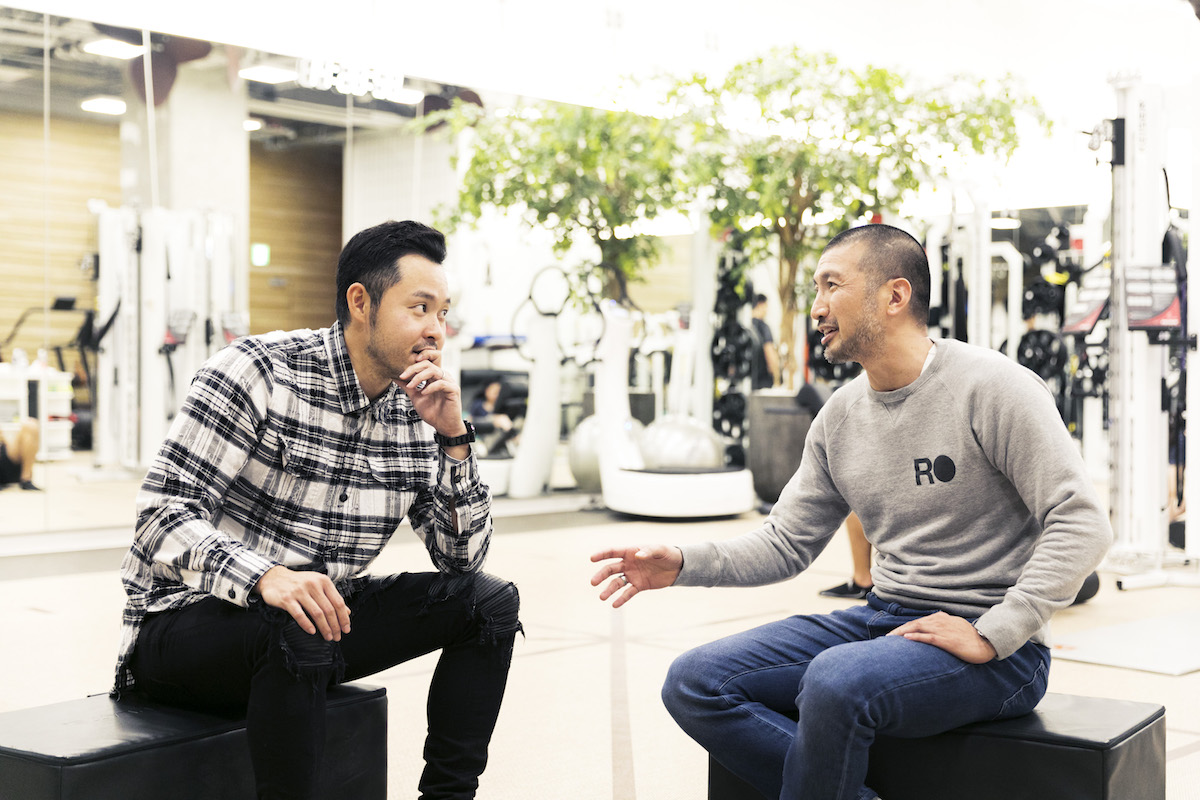
Kitajima : One of the main reasons I decided to establish Perform Better Japan was that I wanted to give something back to all the trainers who had helped me throughout my career. I wanted to put the spotlight on the profession of athletic training, and raise the status of athletic trainers.
Suzuki : I would like to thank you on behalf of all of us athletic trainers. If it wasn't for you, I don't think it would have happened.
Kitajima : Well, in order to compete at the top-level for such a long time, I needed the support of many people including friends, family, and coaches. But amongst all of them it was the athletic trainers who best understood my body, even more than me myself, and even went as far as to look after me emotionally and mentally. Since they don't appear out in front, I wanted to make people aware that these athletic trainers do fantastic work behind the scenes to help us athletes to win medals and competitions.
Suzuki : I would like to thank you on behalf of all of us athletic trainers. If it wasn't for you, I don't think it would have happened.
Kitajima : Another reason is that when I retired I thought, "I'm just not made out to be a coach". (laughs)
Suzuki : Hahaha.
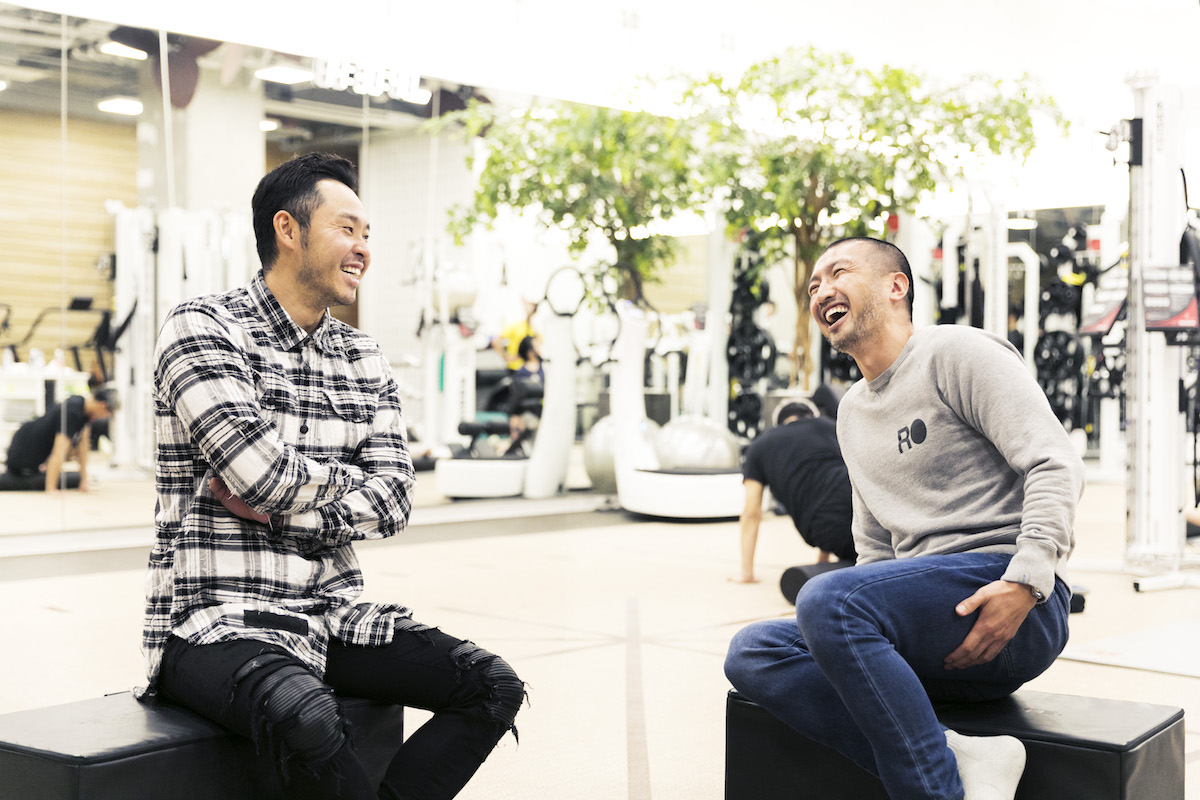
Raising the Profile of Japan Around the World
Suzuki : I'd also like to say how great the Perform Better products are. Especially from an athletic trainer's point of view. Having such amazing products gives us so many more training options. In fact, most of the products we use at R-body are supplied by Perform Better. Whenever we are searching for equipment to help with some particular exercise, just when we think we are out of luck, we end up finding something at Perform Japan.
Kitajima : Thank you.
Suzuki : As an athletic trainer, the thing I hope Perform Better Japan can help make progress with in the future, is to raise the profile of Japanese athletic trainers, so that people around the world start to say, "Wow, there are some awesome trainers coming out of Japan these days!". Up to now, we have learned a lot from overseas about training knowledge and equipment, but I think we are now starting to see many "Japanese original" products and training methods that can have a global reach. And if someone with your influence could make that happen, Kosuke, and I believe only you can do this, it would be fantastic. I would like you to send the top Japanese trainers out around the world! The ability to do this is one of the strengths of Perform Better Japan.
Kitajima : Yes, I would love to be able to help with something like that. And I think that is another reason why it is important for athletes to develop a deeper awareness of their bodies and their training. If athletes are able to ask detailed questions about their training and conditioning work to their athletic trainers, then the trainers will also need to boost their knowledge to answer effectively, and this kind of synergy can give birth to new developments in the Japanese sports world.
Suzuki : Finally today, I would like to share a memory I had in America with you, Kosuke. You took part in a small local competition to iron out a few things with your stroke, and as soon as all the local kids, grandmothers and grandfathers spotted you they shouted "Look! It's Kitajima!" and rushed over to get your autograph.
Kitajima : But before that, everyone did a big double-take. (laughs)
Suzuki : Yes, that was the first time in my life I'd seen anyone do such a genuine double-take. Everyone was like, "Huh? What the hell is Kosuke Kitajima doing here?!", haha. But, seeing the awe and admiration they had for a fellow Japanese person filled me with an enormous sense of pride. It was a great memory.
Two Friends Leading the Way Forward for Japan
Kitajima : In regards to R-body, what I'd like to see in the future, is for the things you are doing to become "the norm" around the world. I'd like it to become accepted that "conditioning" is necessary for both athletes and the general public alike. From now on I hope that our companies can continue to collaborate, and lead the way forward for Japanese athletic trainers and conditioning training in general.
Suzuki : Hearing you say that makes me glad that I chose to become an athletic trainer. Thank you.
Kitajima : You looked after me during the final stage of my competitive career, and although I missed out on going to the Rio Olympics with you in the final challenge of my career, I'm glad that we are now able to work together again as business partners, holding seminars together and collaborating on various projects. Although my athletic career is over, my new life has just begun. I'm grateful to have you, Takeshi, and your company R-body, as a part of the future of Kosuke Kitajima.
Suzuki : I feel the same. I'm happy to be part of your future, too.
Kitajima : R-body is the company that has consistently stated that its mission is "to change the perception of athletic trainers". You are not simply appealing to people like, "Hey everyone, please give us athletic trainers the credit we deserve!". Instead, you are continually trying to raise level of quality and push new boundaries. I think that is fantastic.
Suzuki : We're doing our best, but please also keep lending your support to the Japanese fitness and athletic training industry.
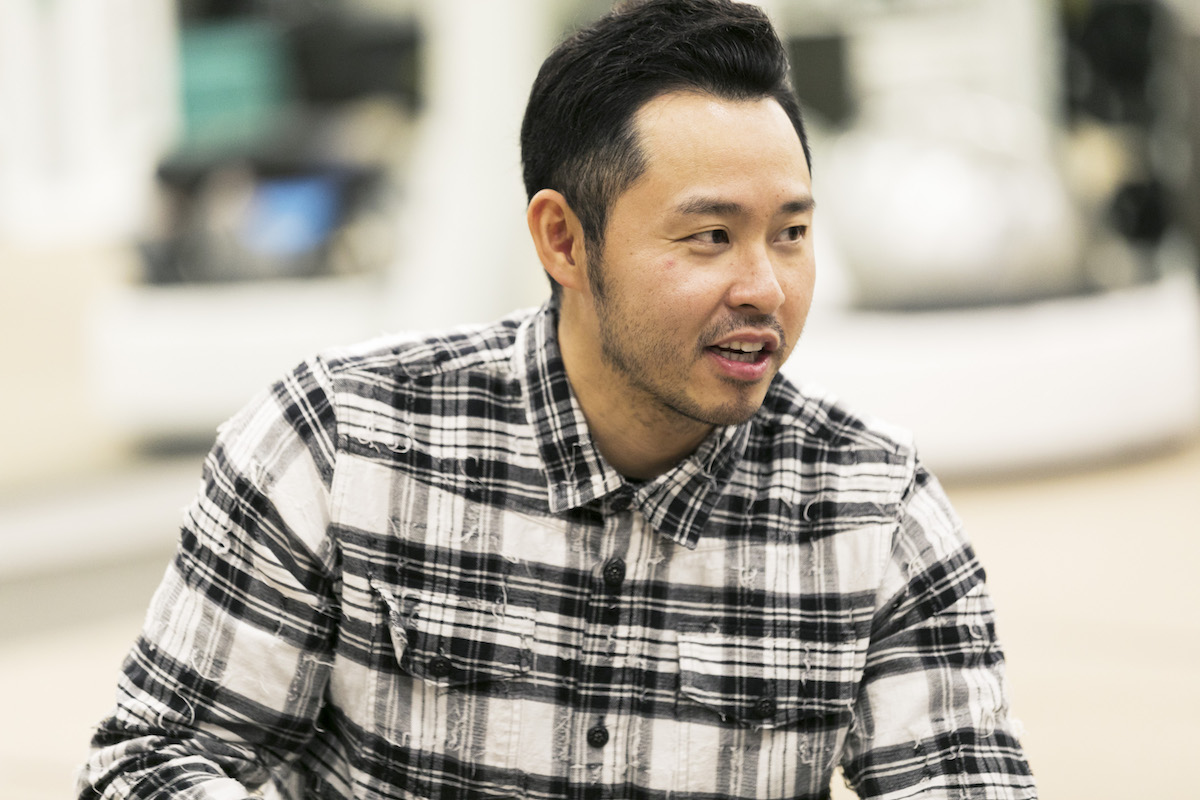
Kitajima : Well, anyway, thank you so much for inviting me here today. Please ask me back at anytime! (laughs)
Suzuki : The pleasure was all ours. Thank you so much for joining us today!
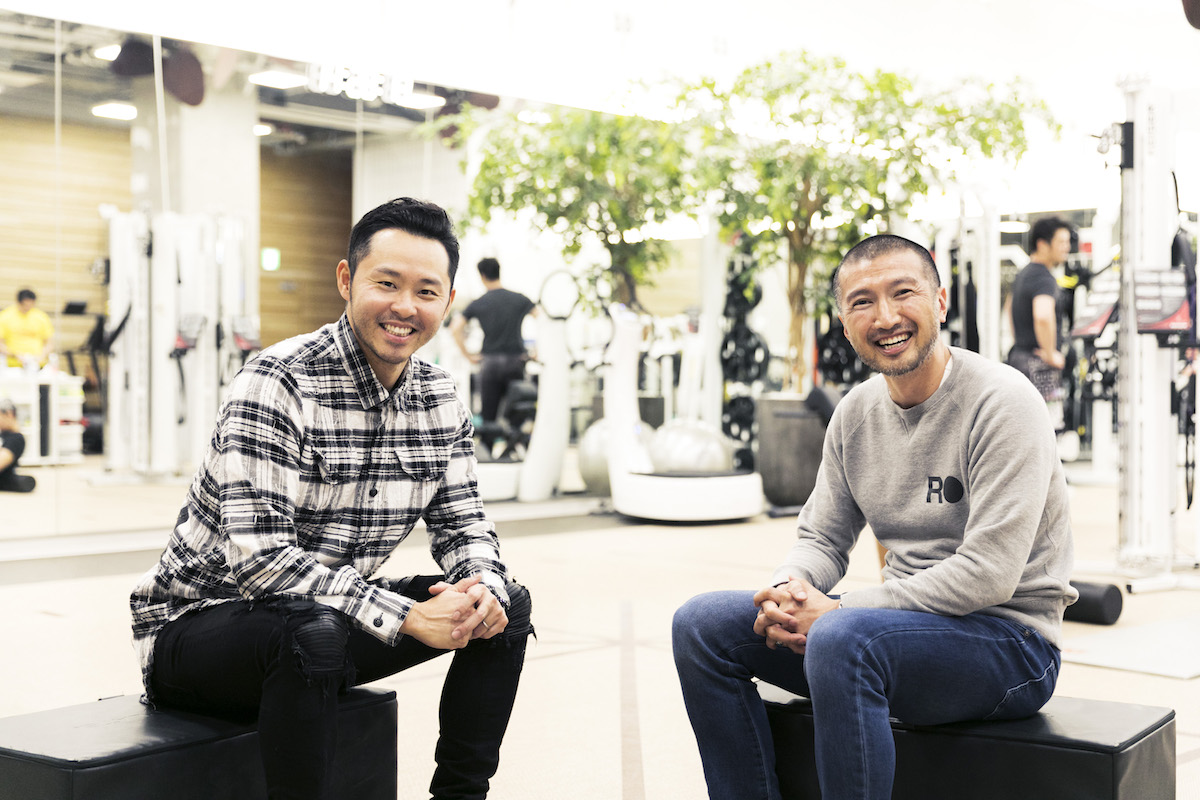
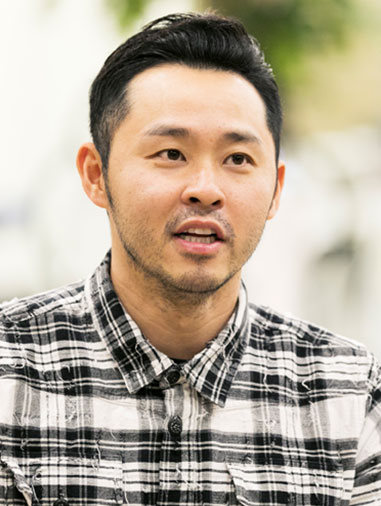
KOSUKE KITAJIMA
Born in 1982, Kosuke Kitajima won gold medals for the men's 100m and 200m breaststroke at both the Athens 2004, and the Beijing 2008 Summer Olympic games. He established IMPRINT Co., Ltd. in 2009, while still an active competitor, and also started running the KITAJIMAQUATICS swimming club, as well as AQUALAB, a state of the art aquatic training facility. In 2015, he established Perform Better Japan, the Japanese entity of Perform Better, Inc., which has a renowned track-record for functional training, rehabilitation and performance improvement in the United States. He retired from athletic competition in 2016. Currently, he works as Coca-Cola's Chief Olympic Officer, and also serves as a director of the Tokyo Swimming Association, as well as holding his own competition, the Kosuke Kitajima Cup.
SPECIAL TALK SESSION
-
No.06With this body gifted to me by my parents, I want to make the most of my life
Nao Kodaira x Masahiro Yuki x Takeshi Suzuki. (R-body)

-
No.0515cm of Infinite Potential.
Hiraku Misawa x Takeshi Suzuki. (R-body)
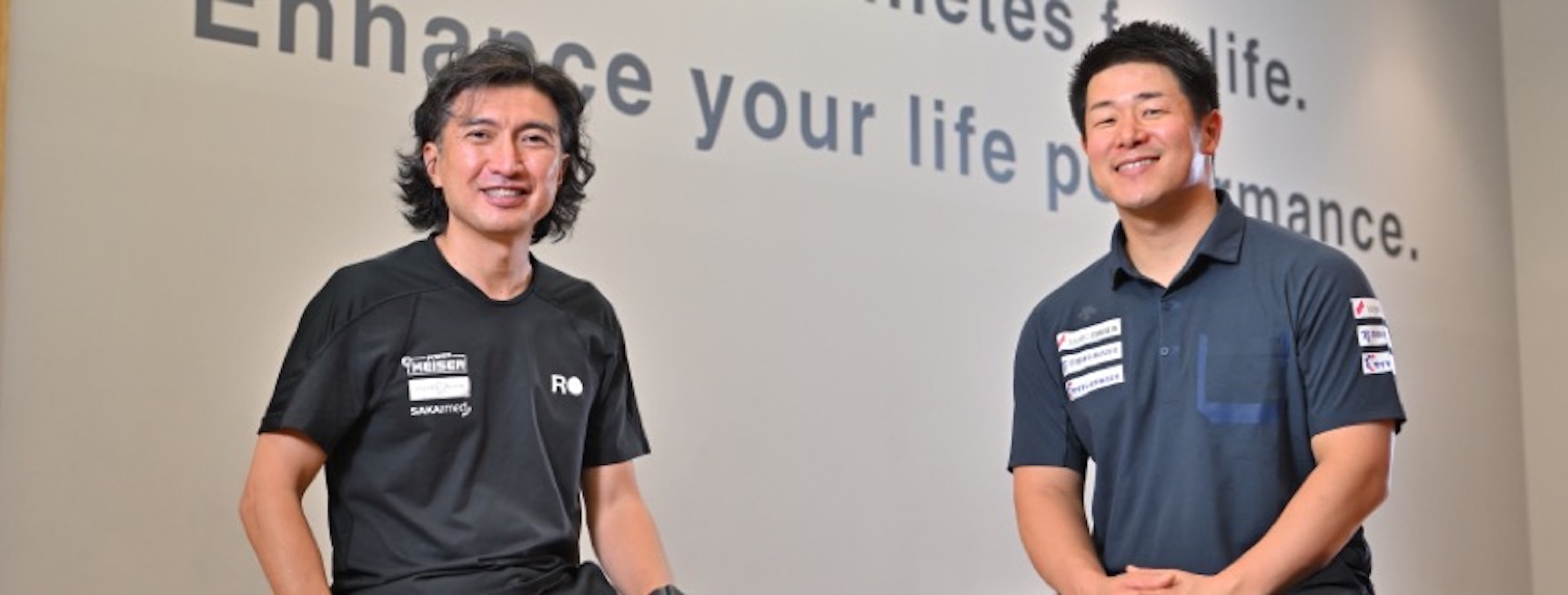
-
No.04To avoid going down a rabbit hole.
Yuji Naito x Takeshi Suzuki (R-body)
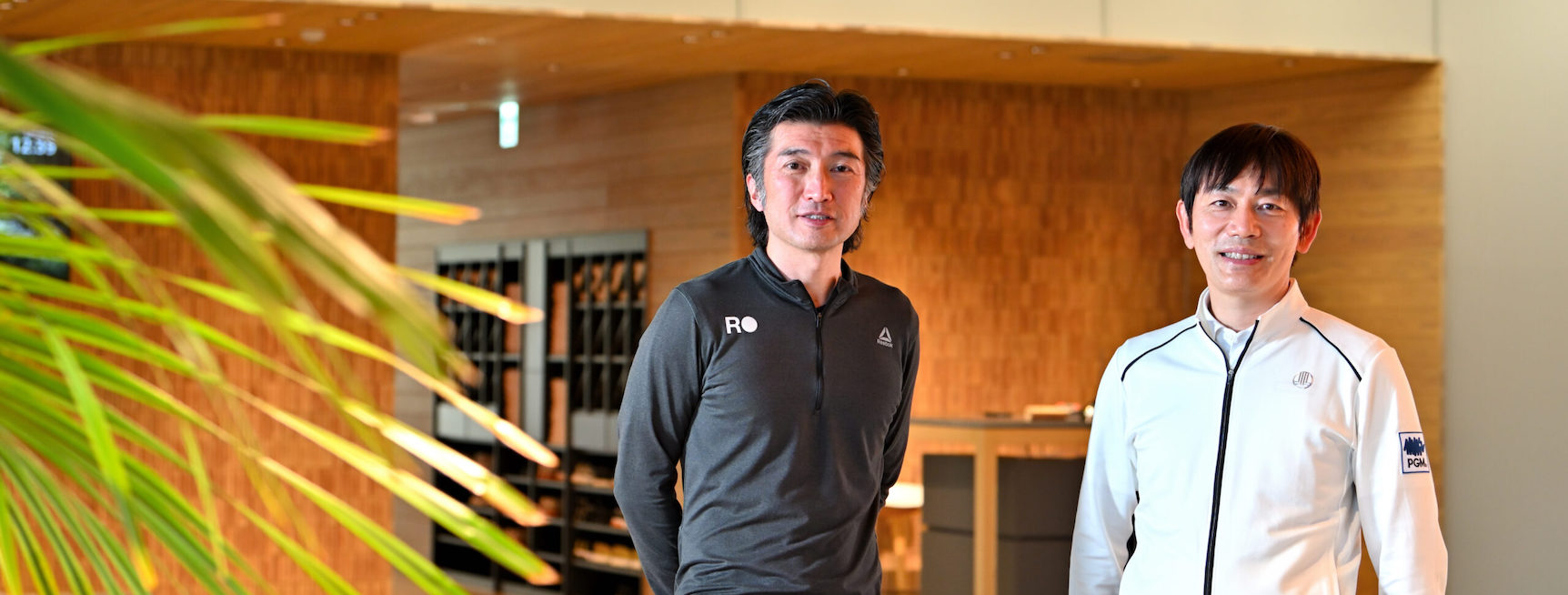
-
No.03Living healthily until 100 years old
Kimiko Date x Takeshi Suzuki (R-body)
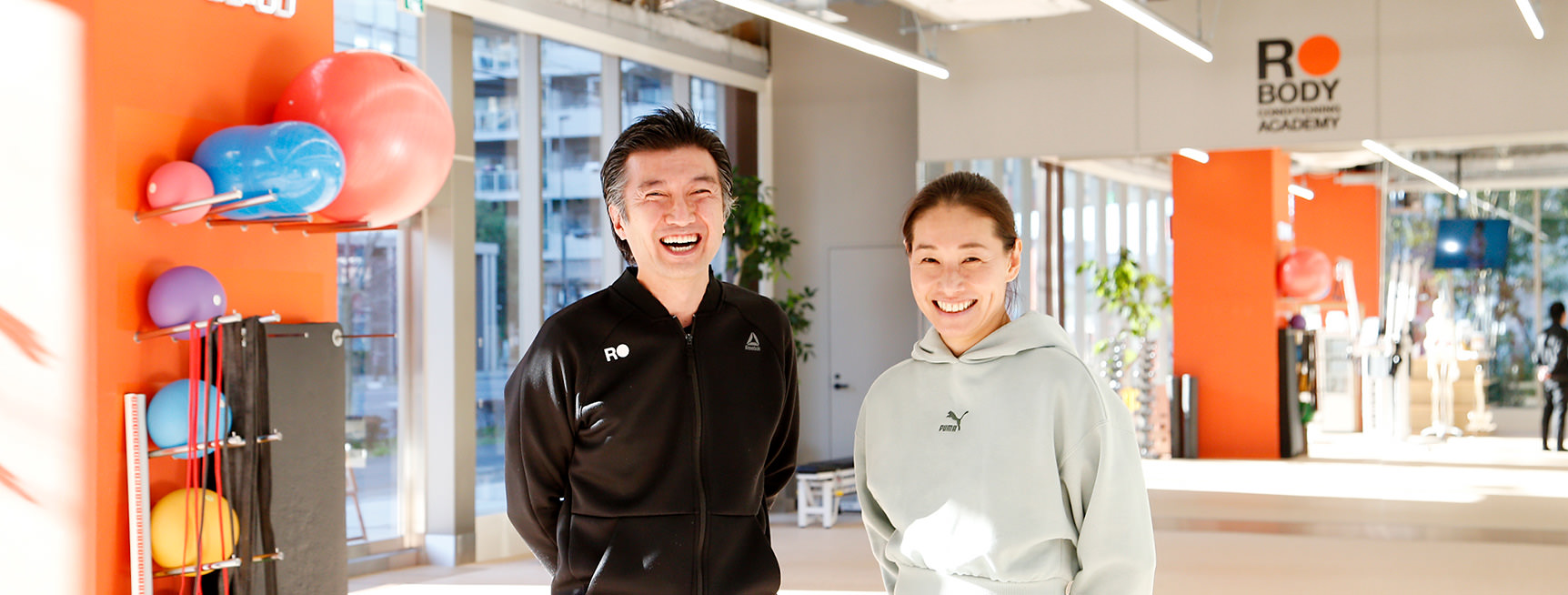
-
No.01Getting to Know Your Own Body
Masumi Kuwata x Takeshi Suzuki. (R-body)
